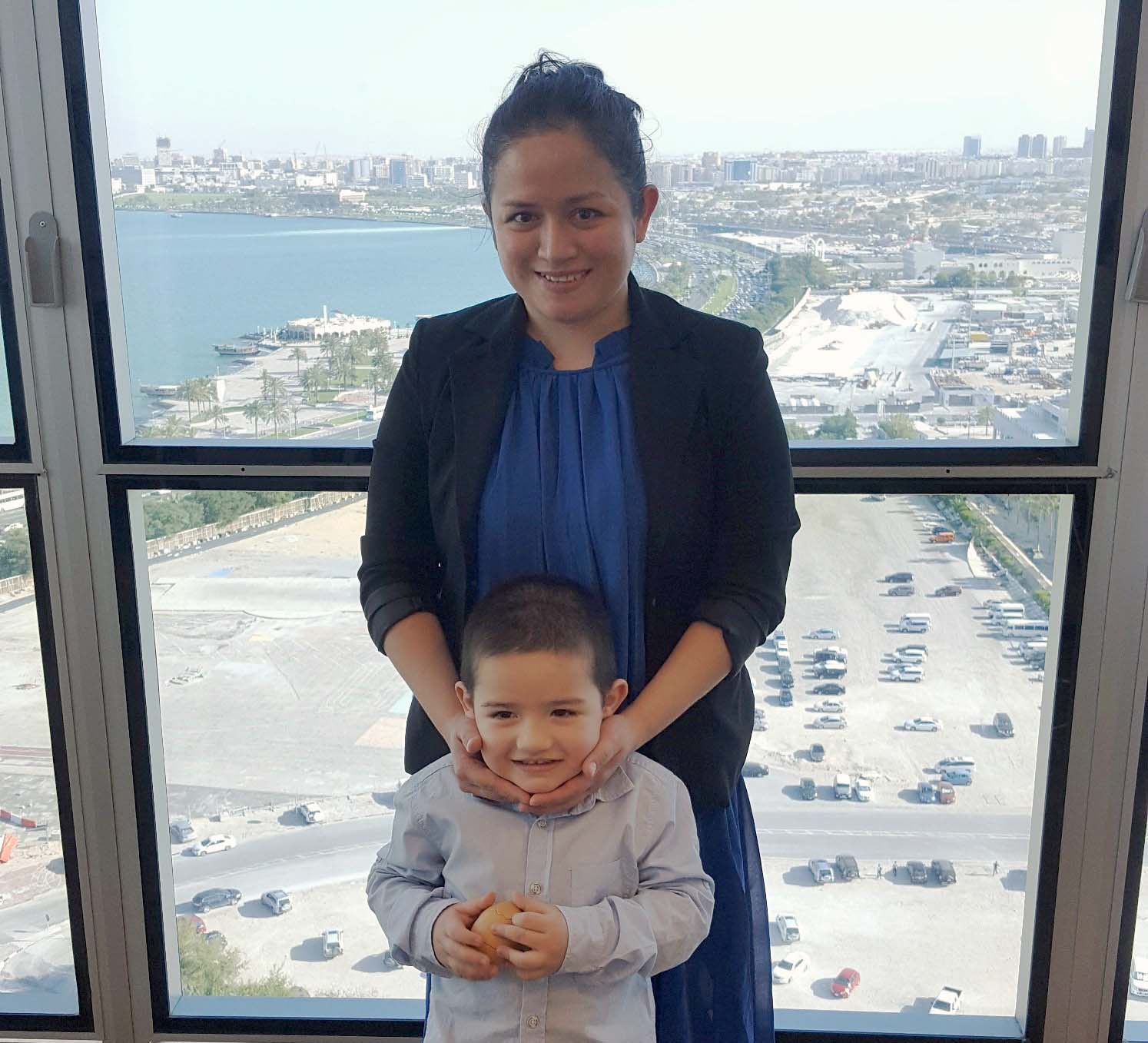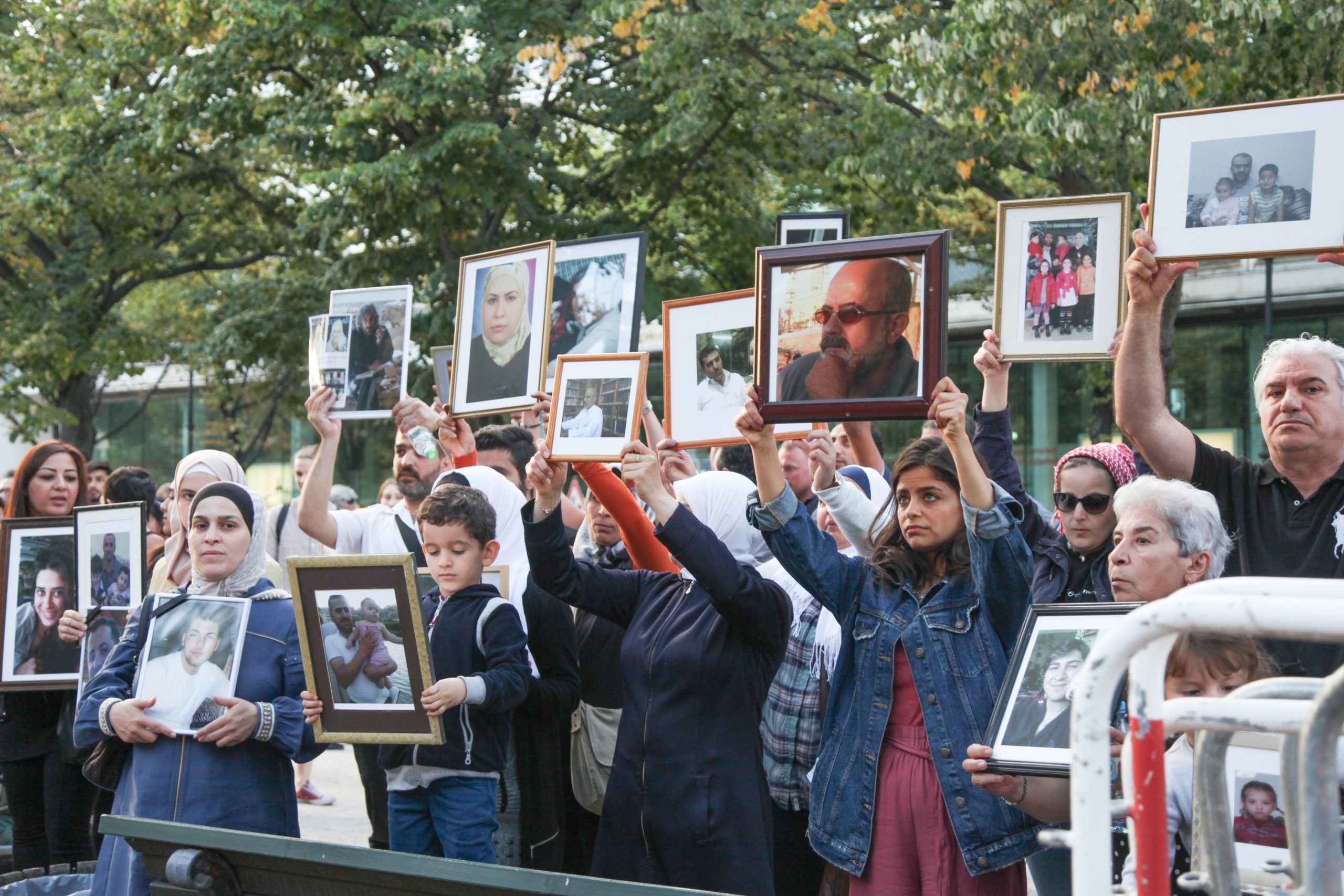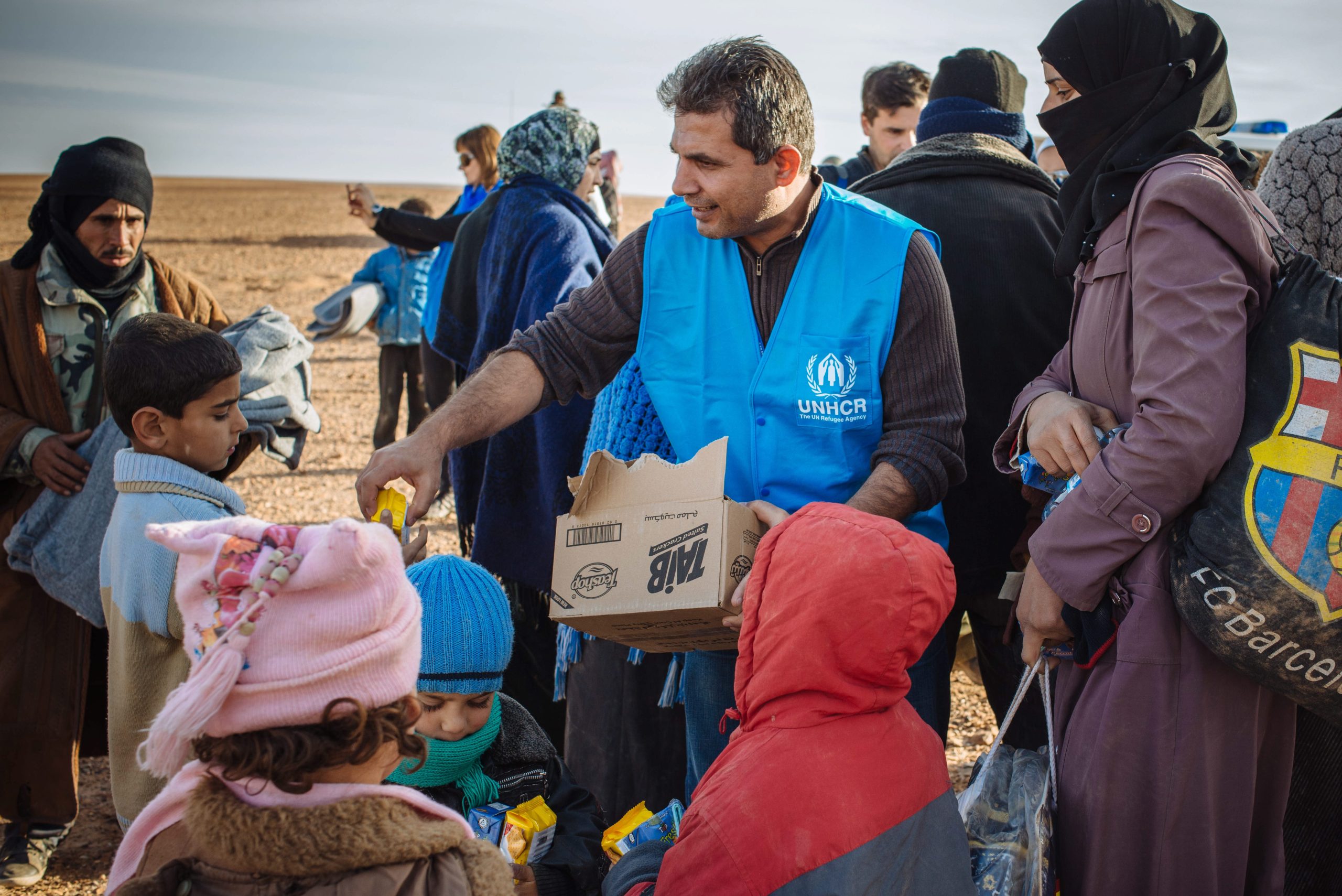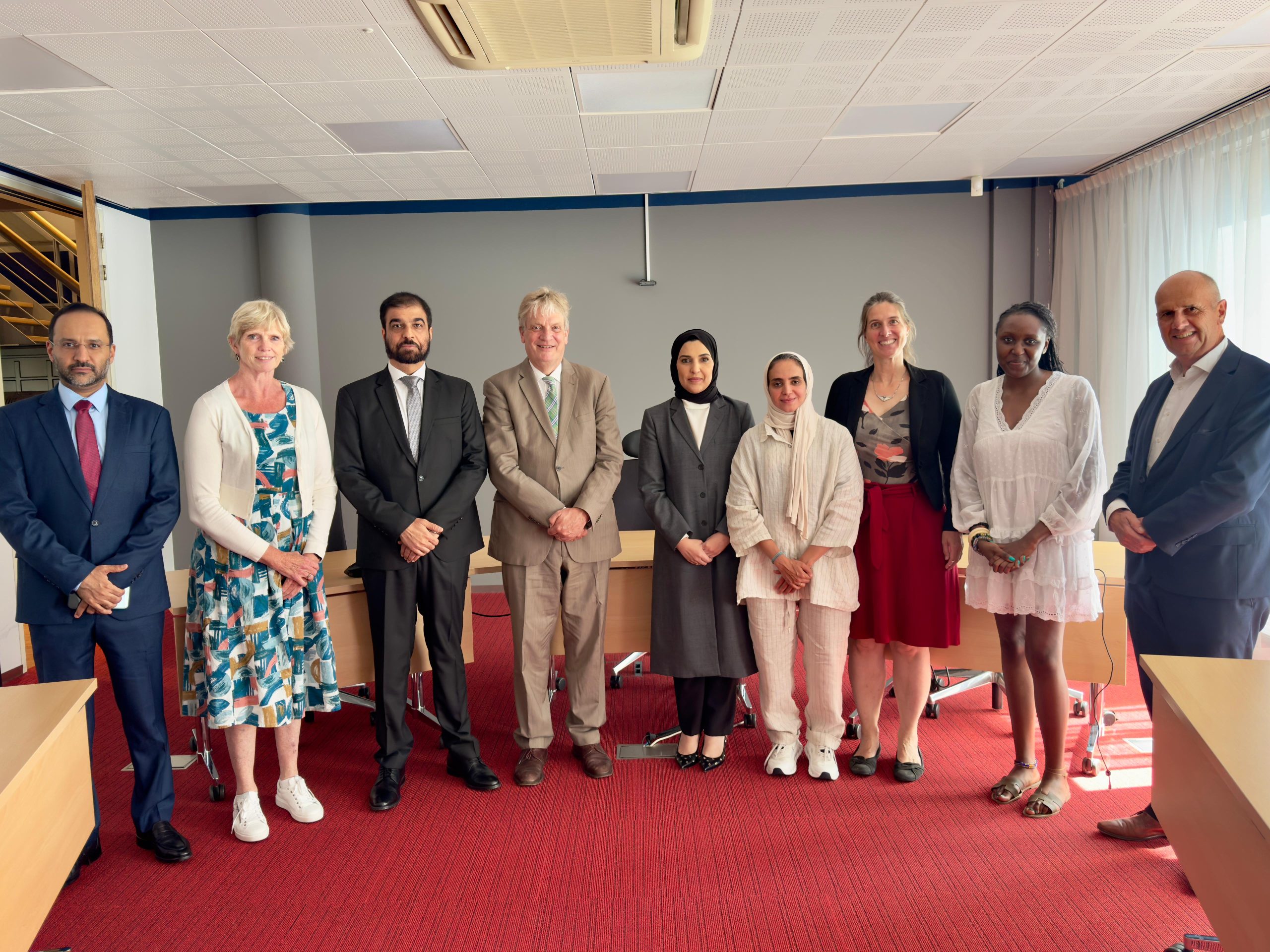
Just over a week ago, Filipina expat Catherine received news that would change her life – and that of her three-year-old son Adam – forever.
According to her legal team, her travel bans had been lifted by the Ministry of Interior, and she and Adam were now free to leave Qatar.
“I cried while reading that email,” the 35-year-old former HR employee, who asked not to use her last name, told Doha News. “My hands were shaking while I wrote my reply.”

Catherine – known up until now as “Mary” in a series of Doha News stories – was arrested at Al Ahli hospital in Doha in December 2012 shortly after giving birth to her son, who was referred to as “William.”
Adam’s Turkish father had left the country for good while Catherine was pregnant, but she had been unable to do the same as she had surrendered her passport as security for a large loan.
Catherine knew that she was breaking the law by giving birth out of wedlock, but was relieved when she discovered that she would be able to keep her baby with her while she served her one-year jail sentence.
Extra jail time
Things got complicated, however, when this initial sentence was completed.
Catherine had a number of large debts which she had been unable to pay off while in jail, an offense that also results in jail time in Qatar.
After a lengthy wait in a detention center waiting for new court appearances, she was sentenced to further prison time for unpaid debt. To her relief, Adam remained with her throughout.
The pair were finally released in October 2015, almost three years after Catherine had first been arrested.
Serving prison time means she did not have to pay back the loans, but she still didn’t get home to the Philippines in time for Christmas, as she had hoped.

Catherine discovered that while she’d served jail time for her debts, further civil cases had also been lodged against her due to non-payment on the loans, and immigration authorities had placed travel bans on her as a result.
But because she was under a deportation order following her prison time, she was stuck. She wasn’t able to obtain a residence permit in Qatar, and therefore couldn’t work legally to repay the debts.
And in any case, loans that had been sizable to begin with were now almost entirely out of her reach; unable to obtain exact figures from the authorities, she estimated in January that they now totaled QR250,000, including three years’ worth of interest and fines.

For the past several months, Catherine and Adam have relied upon friends and relatives in Doha for accommodation and food, their future appearing bleak.
She spent most of the early part of this year trying to obtain her case documents, and visiting various government departments asking if they could help her.
She had been advised to hire a lawyer to help her unpick her situation, but she had no money to do so.
“I’m kind of lost,” she told Doha News in January. “There are files I need (for the case) which the prosecutor’s office have told me they don’t have, because they’re old. I think I need a lawyer, but I’m struggling financially, to be honest.”
Legal help
After Doha News wrote about her predicament, many readers asked if they could help.
Some donated to a GoFundMe page to help Catherine pay for legal assistance, while others got in touch offering practical help.
One such offer came from American expat Kristen Johnson, who was then working as a lawyer at the Doha offices of international law firm Squire Patton Boggs (SPB).
Speaking to Doha News, Johnson said:
“This case was especially important to me because of the impact it had on Catherine’s son, who is nearing school age and is an undeserving victim of the situation.”
I had worked on administrative and immigration related cases in the US and believed that this was the type of case that would get nowhere if it did not have a little outside push from advocates.”
Johnson suggested that her firm take on the case pro bono (free of charge), and her request was accepted.

Catherine was invited to meet a legal team at SPB, who then worked closely with government officials and representatives from the Philippines Embassy to try to resolve her case.
Speaking to Doha News, SPB managing partner Charbel Maakaron said that a team from his firm worked with officials for around eight weeks, until they received the news on April 18 that the Minister of Interior had issued a directive to lift Catherine’s travel bans.
“Catherine’s case is a good example of what can be achieved when people take action to build on the contribution of others to advance a good cause,” he said.
“If it wasn’t for Doha News we would not have known about Catherine and if it wasn’t for the support of the MOI and embassy officials, the matter could not have been resolved.”
Flying home
Catherine and Adam packed their bags and took a taxi to Hamad International Airport in the early hours of Monday, April 25.
There, they met an official from the Philippines Embassy and a representative from the Criminal Investigation Department (CID), both of whom escorted the pair through immigration and into departures.
“I was really nervous at immigration, but it was fast for me,” Catherine said. “The only thing they kept checking was Adam’s travel document.”
Adam does not have a passport yet, because as an unmarried mother, Catherine was unable to legally register his birth in Qatar.
“After we got through immigration though, I cried. After everything we been through – all the waiting, sadness, fears – I left it all behind me.”
Adam posed for a photo beside the popular bear sculpture at the airport, before the pair boarded their flight and took off for Manila.
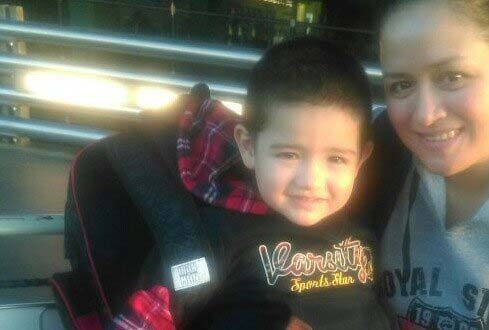
“As the plane was taking off, I just felt excitement. It will be a new life for Adam and I,” Catherine said.
When mother and son emerged through the doors at Arrivals in Manila, a whole crowd of Catherine’s family were there to meet them – cousins, aunts, her niece – and her mother, who she hasn’t seen in over four years.
“I can’t even describe how I feel – I can’t believe I’m actually here – with them,” she said.
Catherine’s reunion with her mother is tinged with sadness, however. She developed kidney failure while her daughter was in Qatar, and has to receive weekly dialysis at a hospital in Manila.
“She looks okay though, but still it scares me,” Catherine said. “But I’m glad I am finally here with her and I want Adam to have memories with her and my family.”
The memory making has already begun. Catherine’s sister cooked a traditional Filipino feast for the family on the night of her arrival – her favorite, pork adobo.
Future plans
Once Catherine and Adam have rested and adjusted to their new time zone, the Catholic said her first priority will be to arrange Adam’s baptism.
She also plans to apply for her son’s birth certificate, which will allow him to obtain a passport.
This is a vital part of the next part of her plan, which is to apply for a visa to work in Australia.
“I used to work for a construction company in Ras Laffan, and most of that team is in Australia right now because they have a project there, so hopefully it will work,” she said.
When asked to reflect on her time in Qatar, Catherine said that she is trying to remember the good times she spent here.
“Being in jail was like a bad dream, but that stopped me from appreciating Doha and the good memories I had. Like the people who have been there for me through all that. The people who I think are living angels – who have helped me so much.”
She added that she has also learned “never to take anything for granted,” acknowledging the advice is cliché but insisting that her experience has reminded her of its truth:
“Every single thing – every little thing that you can do today – do it, because you don’t know what’s going to happen tomorrow,” she said.
Thoughts?

